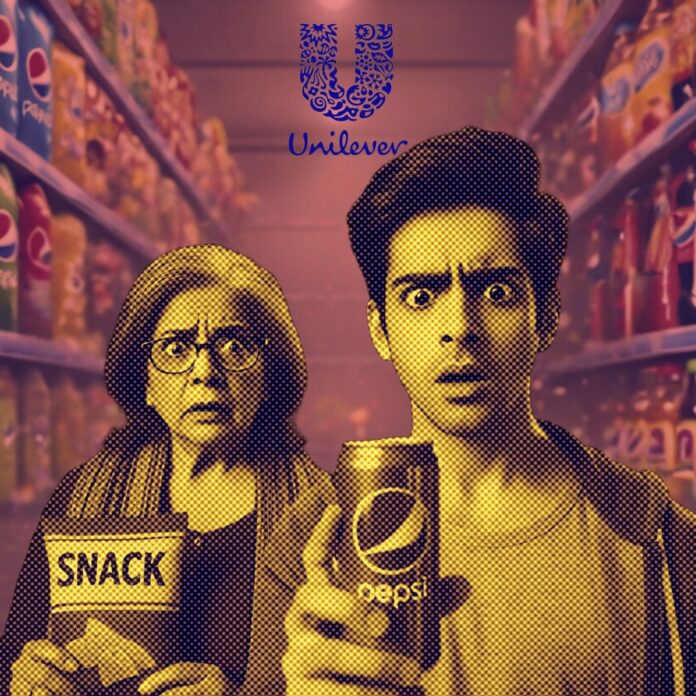A recent report by the Access to Nutrition Initiative (ATNI) has raised serious concerns about the nutritional quality of food products sold by multinational corporations, including Unilever, PepsiCo, and Danone, in developing nations like India. The report suggests that these companies are marketing food items with significantly lower health standards in low- and middle-income countries compared to those in wealthier nations. This revelation has sparked debate over corporate responsibility, nutritional quality, and the implications for public health in countries like India.
The Findings: Lower Health Ratings in Developing Nations
The ATNI report highlights a troubling trend: major global food companies, renowned for their influence and reach, are allegedly selling products of varying nutritional quality based on the region. In high-income countries, these corporations provide food items with higher health ratings, while in countries like India, they offer products with lower health star ratings. Health star ratings are an international system for rating the nutritional profile of packaged food products, with higher stars indicating healthier options.
The report accuses companies like Unilever and PepsiCo of compromising on nutritional standards when it comes to developing nations. For instance, products sold in India may contain higher levels of sugar, salt, and unhealthy fats compared to similar products marketed in the United States or Europe. This discrepancy raises questions about the commitment of these corporations to global health and nutrition standards, particularly in regions where consumers may lack awareness of nutritional content or have fewer healthy alternatives.

What Are Health Star Ratings and Why They Matter?
Health star ratings are part of a global initiative to help consumers make informed food choices. Products are rated based on their nutrient profile, including the content of sugars, saturated fats, sodium, and other ingredients that can impact health. A higher health star rating indicates that a product is relatively healthier compared to lower-rated items.
In developing nations like India, where nutrition-related diseases such as obesity, diabetes, and cardiovascular issues are on the rise, health star ratings can play a crucial role in guiding consumers towards better food choices. However, if multinational companies are consistently offering products with lower ratings, it becomes challenging for consumers in these regions to access healthier options. This practice may contribute to the worsening of health issues related to poor diet and nutrition.
The Corporate Response to Nutritional Responsibility
Multinational corporations often emphasize their commitment to improving global nutrition. Many of these companies, including Unilever and PepsiCo, have corporate social responsibility (CSR) initiatives and pledge to promote healthier choices. However, the ATNI report questions the sincerity of these commitments, suggesting that these promises might only apply to high-income nations where public scrutiny is more intense, while low- and middle-income countries are left with nutritionally inferior options.
In response to the report, these companies have pointed to various initiatives aimed at improving the nutritional profile of their products across the board. For example, Unilever has publicly committed to reducing sugar, salt, and trans fats in its products and has pledged to promote health and wellness worldwide. PepsiCo, on the other hand, claims to be working on product reformulation and enhancing transparency in labeling. However, critics argue that these efforts are not enough, especially if the disparities in nutritional quality between countries persist.
The Impact on India’s Public Health
India has been grappling with a dual burden of malnutrition—undernutrition on one end and a surge in diet-related non-communicable diseases (NCDs) such as diabetes, hypertension, and obesity on the other. The availability of lower-quality food items from global brands exacerbates this issue, as consumers are drawn towards branded products that may carry an implicit assurance of quality.
For low- and middle-income consumers, multinational brands like Unilever and PepsiCo often represent trust, reliability, and safety. However, if these brands are providing products with higher sugar or sodium content, the result could be a public health crisis. India’s health systems are already strained, and the added burden of diet-related illnesses could further impact the nation’s healthcare infrastructure.
Children and young adults, who form a significant portion of India’s population, are particularly vulnerable to the effects of poor nutrition. Consumption of unhealthy, processed foods can lead to early onset of lifestyle diseases, ultimately affecting life expectancy and quality of life. The ATNI report underscores the need for stricter nutritional guidelines and greater accountability from corporations in India.
The Need for Stricter Regulation and Transparency
The findings of the ATNI report call for increased regulatory oversight in India’s food industry. Government agencies, consumer advocacy groups, and health organizations are now pressing for enhanced transparency and stricter regulations on nutritional content. Some advocates are suggesting that health star ratings should be made mandatory on all packaged food products to empower consumers with knowledge about what they are consuming.
Additionally, there is a growing call for multinational companies to adopt uniform nutritional standards worldwide, irrespective of the market. This would ensure that consumers in developing nations have access to the same quality products as those in wealthier countries. Some experts argue that these companies should focus on product reformulation and improving the nutritional quality of their offerings across the board to prevent adverse health impacts on vulnerable populations.

What Can Consumers Do?
While corporations and governments bear significant responsibility for ensuring food quality, consumers also play a role in demanding better products. As awareness of the impact of poor nutrition on health increases, consumers in India are encouraged to make informed choices, read labels carefully, and be cautious about consuming processed foods.
Switching to whole, natural foods like fresh fruits, vegetables, and grains can help reduce dependency on processed foods that may lack essential nutrients. Consumers can also support local brands that prioritize nutrition and transparency, thus encouraging a shift in the food industry towards healthier products.
A Call for Corporate Accountability in Nutrition
The ATNI report serves as a wake-up call for both multinational corporations and the public. Companies like Unilever and PepsiCo have a responsibility to provide products that do not compromise on quality, especially in developing nations where access to health information and alternative options may be limited. As India battles rising cases of lifestyle-related illnesses, it is crucial that food giants commit to ethical practices and prioritize the health of all consumers, regardless of their economic background.
The issue underscores a broader need for corporate accountability, governmental regulation, and consumer vigilance. Only by working together can these stakeholders ensure that nutritious, high-quality food is accessible to everyone, supporting a healthier future for generations to come.


